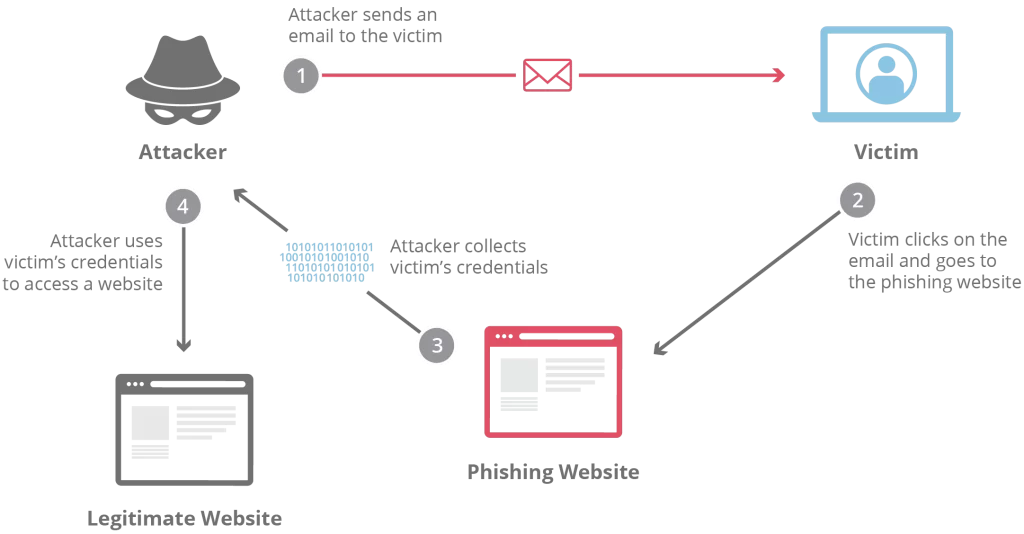WHAT IS PHISHING?
Phishing in London, Scams online are more common than ever in this digital age, where the internet is essential to our daily lives. Phishing is a trick that is still used to trick people and businesses around the world. People who are wrong with computers use phishing to get people to give up private information like login passwords, credit card numbers, or personal information. In this blog, we’ll talk about what phishing is, the most common types of it, and how to stay safe from these scams, especially if you live in London.

Common Forms of Phishing
1. Email Phishing:
Email phishing is one of the most common types of scamming. Emails from attackers that look like they came from actual companies, banks, or government offices are sent. Often, these emails have essential messages like “urgent account verification” or “security updates” meant to make people click on harmful links or give out private information.
2. Spear Phishing:
This type of phishing is more focused, and the attackers make their plans unique for each person or business. Making a convincing and personalised phishing attempt means learning about the target, like their job title, hobbies, or contacts.
3. Pharming:
This is when users are suddenly taken from safe websites to unsafe ones without understanding. Cybercriminals take advantage of flaws in the domain name system (DNS) to change users’ browser addresses and send them to fake sites that collect personal data.
4. Smishing:
Smishing, or “SMS phishing,” is when people are tricked into clicking on harmful links or giving out personal information through text messages. Often, these messages say they are from an honest company, like a bank or service provider, and ask you to do something immediately.
Protecting Yourself from Phishing in London
As London continues embracing technology and digital solutions, people who live and work there must be careful of phishing attacks. These are some easy ways to keep yourself safe that work:
1. Educate Yourself:
Awareness of phishing scams is the first thing to protect you from them. Learn about common scam tricks, and don’t trust emails you didn’t ask for, especially ones that ask for personal information. Even if the email appears to come from someone you know and trust, be careful.
2. Verify Email Sources:
Make sure the email source is accurate before you click on any links or give out any information. Carefully check the email address because fake emails often use addresses that sound like real ones or are misspelt versions of real ones. If you’re not sure, use the official contact information to get in touch with the group.
3. Use Multi-Factor Authentication (MFA):
Always use multi-factor authentication. This makes it safer by needing extra steps to verify your identity, like sending a code to your phone and entering your password. Even if someone gets your qualifications, MFA makes it harder for them to get in.
4. Keep Software Updated:
Make sure your software is always up to date. Your operating system, safety software, and apps should all be updated regularly. Phishing attacks are often carried out by cybercriminals using flaws in old software. You will have the most recent security patches if you keep everything current.
5. Beware of Urgent Requests:
Be wary of requests that you act quickly. Phishing emails often use a sense of urgency to get you to work soon. Messages that say bad things will happen if you don’t act right away should not be taken seriously. Take the time to make sure that these kinds of interactions are natural.
6. Check Website Security:
Ensure the website is safe: When you visit websites, especially those needing personal or login information, ensure the website is secure. Search for “https://” in the URL and a lock icon in the address bar. These signs show that the link is safe.
7. Report Suspicious Activity:
If you get a scam attempt, you should tell the police or the company being impersonated. Reporting these problems helps eliminate fake websites and makes people more aware of new threats.
Conclusion : As London continues to become more digital, it is essential to protect against phishing attempts. People and businesses in London can make their defences stronger against constantly changing threats by staying educated, being careful, and using the cybersecurity resources and services that are out there. Remember that the best way to avoid phishing is to be alert and prioritise online safety.

